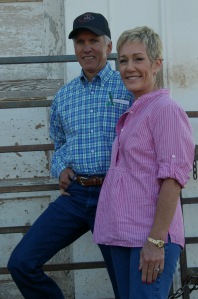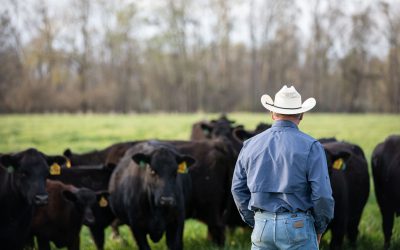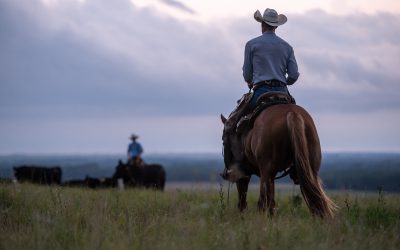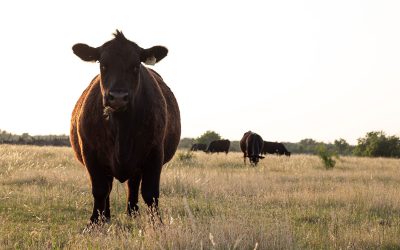
Ignorance is bliss
October 11, 2011
Some say that ignorance bliss…but not according to Cooper and Katie Hurst. These city folk turned Mississippi cattle couple learned the hard way that ignorance actually leads to frustration, missed opportunity for herd improvement, and ultimately, lost profit.

I had the pleasure of meeting the Hursts’ last month at the Gardiner Angus Ranch Fall Production Sale in Ashland, Kansas. Katie’s warm southern smile and Cooper’s subtle southern inflection told me right away – this was going to be a good one.
As first generation cattlemen, the two admitted they had a lot to learn when they started their F-1 Braeford herd just 16 years ago. Like many of their neighbors in the South, Cooper and Katie were running a typical southern-cross herd, selling load lots primarily thorough private treaty. When the same buyer kept coming back for more, the couple assumed what many producers would – their cattle must be pretty darn good. “Or so we thought,” says Cooper. “At that time, all we really knew was weaning weight.”
After a few years of being promised data with no delivery,the Hursts’ made up their minds – they would retain ownership and feed out their own cattle. This was a surefire way to get the data they were looking for – data that Cooper later described as “a rude awakening.”
“The cattle gained and converted,but the quality grade just wasn’t there. We were bouncing around in the 35% low choice or above and knew we had to make a change.”
That’s when Henry and Mark Gardiner entered the picture. As commercial producers, Cooper and Katie wanted to improve their carcass characteristics with balanced bulls. Using Gardiner Angus Ranch genetics, that’s exactly what they did.
“In a nut shell we’ve gone from 35% choice and below plant average for dressing percentage to, in 2010 which was our Angus sired calves, we were 95% choice and 50% CAB,” says Cooper. And now they are beginning to stack genetics, which will likely push those numbers even higher.

But many producers are still dragging their feet. To people who insist they want to sell at weaning, Copper offers a challenge: how are you going to negotiate with a buyer when he knows more about your calves than you do? In this day of information, he’s got all of the bargaining power.
“The bottom line is, you’ve got to be willing to accept – hey, if I’ve got flaws, I better be willing to change,” says Cooper. “And if you don’t, you’re kidding yourself.”
This sweet southern duo has come a long way since their days of unseen data. Although there have been challenges, a passion for the business keeps their spirits high. “We love the cow-calf business,” says Katie, “and seeing your crop year to year and improving it and working on it – that to me is what it’s all about.”
For more information on the benefits of individual I.D. carcass data or finding the right feedlot partner for transitioning to retained or shared ownership, check out this blog post by Gary and Laura’s news release.
You may also like
Progress from small steps
Every day is a chance to learn and get better. Thousands of others like my new friends in Alabama are taking steps to meet the shifts in consumer demand, and to know more. Small steps in the right direction can start now. Even if it’s just recording a snapshot of where you are today, a benchmark for tomorrow.
Not perfect, but working to get better
The CAB Cattleman Connection team heard its name called more than once in the virtual ceremonies, and each time came a sense of personal accomplishment, but even better: confirmation that we’re getting better at our craft. I hope that means we’re doing a better job for you.
Beefed up findings
Frank Mitloehner presents his findings on the animal ag sector’s impact on global warming. He explains how cattle counterbalance other fossil fuel sectors, proving that cattle are a solution and not a threat.



